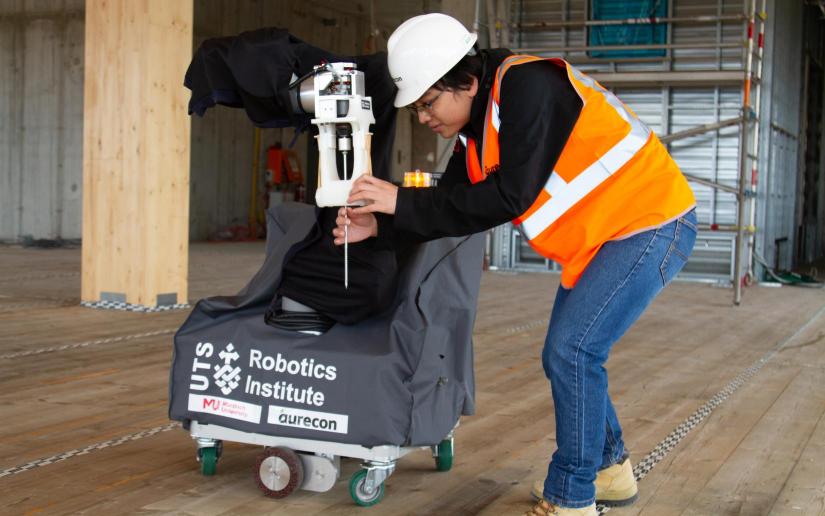A significant research grant via the UTS Research Office is allowing a transdisciplinary team led by the School of Built Environment's Professor Shankar Sankaran – alongside Faculty of Engineering & IT's Distinguished Professor Dikai Liu – to investigate the socio-technical aspects of humans and robots working together in teams, in the context of the Australian construction industry. (The grant will fund collaboration between UTS's Centre for Informatics Research and Innovation and the UTS Robotics Institute.)

UTS researcher Dinh Dang Khoa Le works on an earlier robotic construction project. Image: Murdoch University.
The project will investigate three broad areas where robots might bring social benefits by assisting humans, namely:
- Potential reductions in workplace injuries by eliminating physically challenging work;
- Possible decreases in project completion times through automating repetitive tasks and reducing monotony; and
- The likelihood of faster and more useful feedback by more precise sensing during task performance.
As a researcher in organisational project management, Shankar will in part seek to explore this project using sociotechnical systems theory (STS) – examining how the introduction of new technology in organizations impacts on people, and specifically how multi-skilled people work together as self-organised units to optimise social and technical systems. The study will aim to understand the socio-technical interactions, structures, challenges, and opportunities arising from humans interacting with collaborative robotics technologies.
Other UTS School of Built Environment researchers to work on this project include Dr Alireza Ahmadian Fard Fini and Associate Professor Johnny Wong, who will use the opportunity to explore further research topics in construction automation.
It is envisaged that this project will help to stimulate further collaboration across disciplines with interest in the construction sector, with a view to employing technology for the improvement of safety, productivity and well-being. The study is due to report its findings by the end of 2022.

